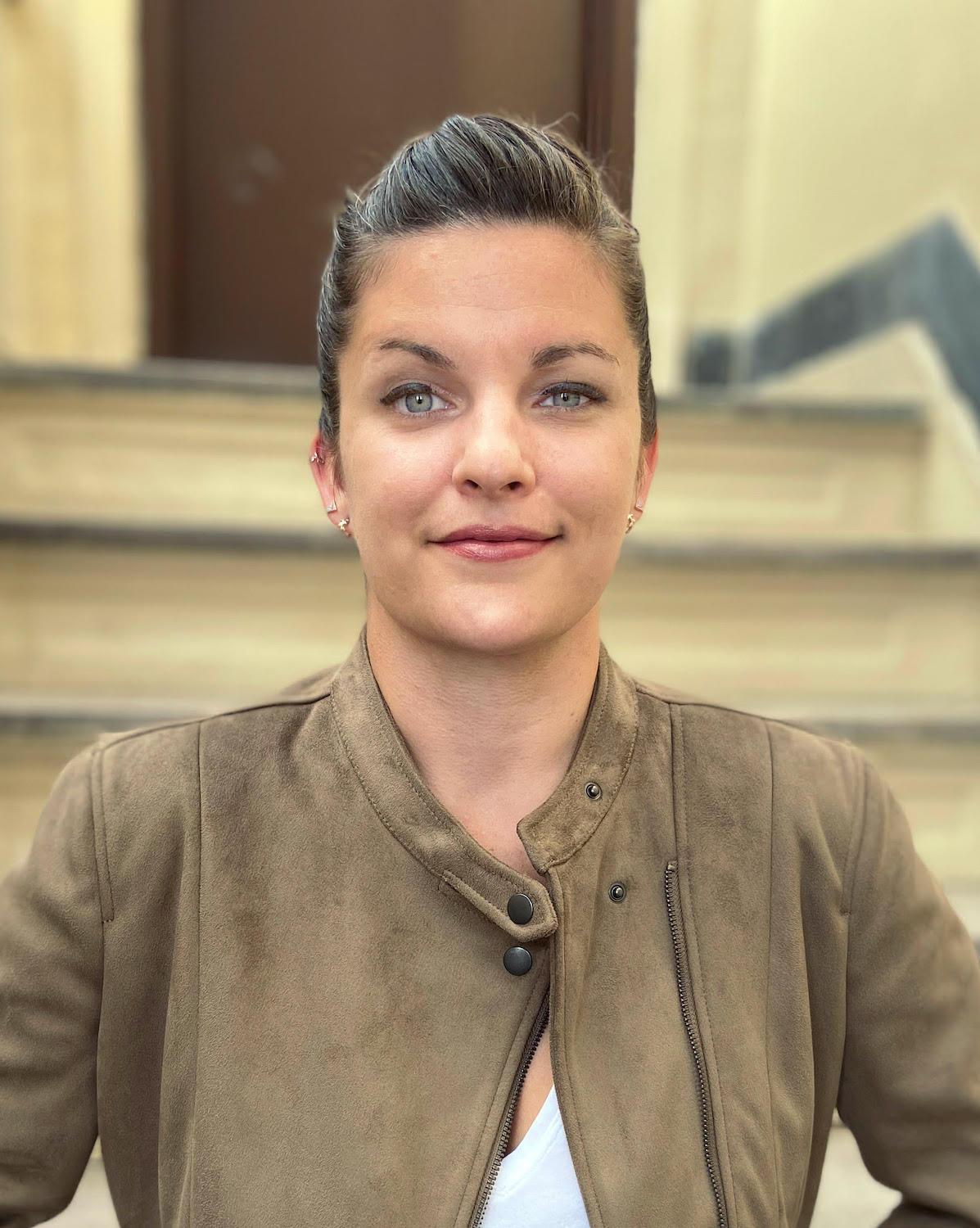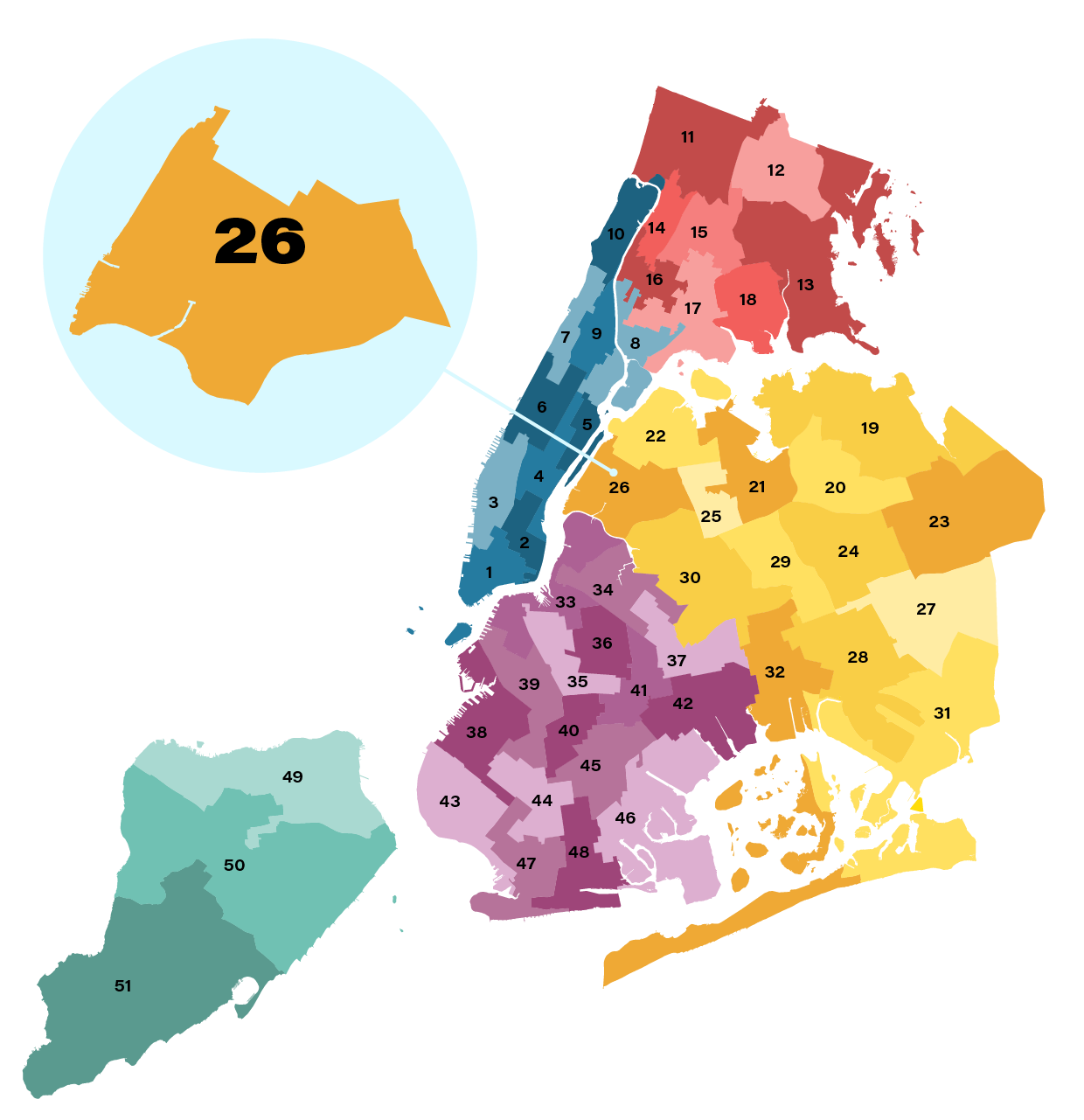First elected in 1991 and then again in 2009, City Council Member Karen Koslowitz has had quite the career representing District 29 in Central Queens. Even her years off were spent as the appointed deputy borough president. For twelve years in office, the incumbent had a mostly inoffensive record, but her constituents won’t forget one vote: when she supported a plan to build a new Kew Gardens jail in District 29. The area is home to many active civic associations, with concerns centered around quality of life, who widely protested the council member’s vote. In response, Koslowitz called the vote the hardest of her career, but defended herself. In a press conference she said, “I go to sleep at night and I sleep very well. The people who say ‘no’ have no solutions. They just say ‘no.’” As is the case with most City Council seats, District 29 will soon be represented by someone new, and that person will need to contend with the “no’s” and with the solutions.
Koslowitz previously ran unopposed when she won a new term in 2017. With the incumbent term-limited out of her seat this year, 10 candidates aim to replace her. Due to the heavily Democratic population in the district, the Democratic primary, with 9 candidates, is likely to decide who will represent the district next year. The winner of the Democratic primary will face Michael Conigliario, the sole Republican candidate, in the general election. Several Democrats have raised the maximum public funds and have gained significant momentum. Lynn Schulman, who is running for the third time to represent the district and is a former opponent of Koslowitz in her 2009 race, is in the fundraising lead with private funds upwards of $80,000. First-time candidate David Aronov follows her with about $65,000. Avi Cyperstein, the Democrat with the most conservative platform, is pitching himself as a first responder and has reached almost $50,000 in private fundraising. Also notable is Aleda Gagarin, billing herself as the most progressive candidate, with around $35,000.
Even with the wide range of platforms, most of the candidates are united on one front: stopping the planned Kew Gardens jail. Koslowitz’s clean reputation was scarred after her 2019 vote in favor of the city’s plan to close Rikers Island and build four new borough jails. Prior to the vote, Queens Community Board 9 voted “no” on the jail. Koslowitz’s vote came with a lengthy list of conditions, including the hiring of additional police officers to the New York City Police Department’s 102nd precinct, and the installation of new security cameras in nearby public schools.

Koslowitz’s decision was extremely unpopular among her constituents. District 29 is in Central Queens, comprising Forest Hills, Kew Gardens and Rego Park, and represents a majority white population. The district also represents a wealthier section of New Yorkers. Forty-three percent of households are owner-occupied according to the 2010 census. This characterizes the district’s concerns with quality of life, and prioritization of education, housing values, safety and senior health services.
The district’s concerns were reflected in their response to the jail. The discord created by Koslowitz’s vote is still relevant, with the city releasing more specific plans for the jail and a recent lawsuit from homeowners hoping to block its development.
Though candidates are by and large against the jail, it is unclear what other overall changes will arrive from a new council member. Schulman, lead fundraiser, has had long-lasting ties with Koslowitz. In 2009, she ran against the council member in the Democratic primary, losing by a slim margin of less than 4%. Fifteen years earlier, Koslowitz had appointed Schulman to Community Board 6. Now, the incumbent has endorsed Schulman, stating that she believes Schulman has a long-established record of dedication to health care and education. While an endorsement from the 12-year incumbent could raise questions about Schulman’s ability to bring something new, Schulman touted it as a significant vote of confidence.
“She actually endorsed me because she felt that I was very committed to the community,” Schulman said. “I'm very committed to the community. I grew up here. I live here. My mother still lives here. And so I'm very devoted to public service.”
Schulman’s record makes her the arguably most experienced candidate. Ten years serving as an executive director for a hospital network has made her platform’s focus on health care a particularly strong one. She and several other Queens City Council candidates, including candidates in District 29, have also signed onto a letter expressing the need for increased hospital capacity in Queens, a borough that was especially impacted by the COVID-19 pandemic. Schulman’s boast of having decades of community experience is strengthened by her long string of endorsements from politicians such as Rep. Grace Meng and state Sen. John Liu to some of the city’s most powerful unions, such as 1199 SEIU and the United Federation of Teachers.
In a district focused on maintenance of status quo rather than hefty change, Schulman may be the obvious candidate. Michael Krasner, professor of political science at Queens College, said that the endorsement of the county’s Democratic party as well as the labor unions would be a major turn for any candidate because of the organizational ability to turn out voters. Schulman has both.
But Schulman’s dominance in the race does not make her a shoo-in. Aleda Gagarin, a nonprofit development director, has come into play as the candidate to the left of Schulman. Both describe themselves as “progressive.” Gagarin claims to be “to the left” of Schulman on issues like defunding the police, which brings into question what “progressive” might mean to each candidate. Both support reducing funding for the New York City Police Department and diverting resources into social services programs. Gagarin has supported a $3 billion reduction of the police budget, while Schulman has yet to give a specific number, saying that she will have to work together with the council to carefully determine cuts. Gagarin’s husband, Melquiades Gagarin, previously ran against both Schulman and Koslowitz in the 2009 Demoratic primary. Gagarin described both women as dedicated public servants who she has respect for, but also places herself as the representative of a “new New York.”
“I am, you know, I think to the left of Lynn on things like police reform, on budget justice, and shifting money away from policing and into community care,” Gagarin said. “I think that our environmental justice platform is much more robust.” She also commended the incumbent’s education efforts, but remarked that she was disappointed by Koslowitz’s vote for the Kew Gardens jail as well as her vote in favor of last year’s City Council budget.

While Gagarin is behind other candidates in terms of private funding, she does have key endorsements from progressive heavyweights like Assembly Member Ron Kim, as well as groups like the New York Working Families Party and the Sunrise Movement.
Krasner remarked that insurgents can sometimes upset races, especially local races that may have lower turnouts. “If you know if there's someone who's built up a reputation that can translate into people going around and knocking on doors, then they would be stronger as well even without the endorsement of the large organizations,” Krasner said. Gagarin described her campaign as the culmination of a neighborhood project. If that holds true for this race, she may present herself to be a successful underdog.
Several other candidates may be able to turn out similar grassroots campaigns with community support. Cyperstein, another top fundraiser, has focused on strong campaigning among Orthodox Jewish voters. Donghui Zang has also built a more conservative campaign, focused on preserving the specialized high school admissions test for the city’s elite public high schools. Zang and Edwin Wong, a Community Board 6 member, are two Asian American candidates in a district with an Asian and Pacific Islander population of almost 30%.
Aronov, the current runner-up in fundraising, would be the first Bukharian American to hold a city council office. He also has worked within Koslowitz’s office, describing it as the experience that caused him to dedicate his life to public service. Aronov believes he represents a younger voice that serves both his peers as well as older people, and has built part of his platform around language justice and accessibility.
Aronov and other candidates are confident in their outreach and platforms. He remarked that in addition to the newly empty seat, the city’s public matching system, the 2016 election and COVID-19 have all inspired candidates. The race will be especially important as the plans for the Kew Gardens jail continue to move forward. Only time will tell if a new moderate takes over, or if a “progressive” will upset.


